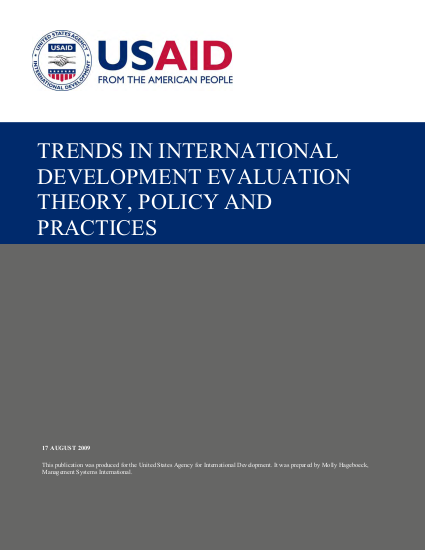
This study was undertaken to provide the U.S. Agency for International Development (USAID) with a portrait of trends in international development evaluation over the past decade. Coverage includes the findings of previous reviews of trends in evaluation; information on other donor evaluation policies and guidelines; and an analysis of trends in USAID evaluation reports for the period 2005 through 2008. The paper includes options for USAID’s new Office of Evaluation that are consistent with current donor practices and USAID’s own history.
Evaluation theory, which focuses on the way in which evaluation interacts with the social programs it examines, has evolved slowly since the late 1960s when it was first introduced in U.S. Government agencies. Advances in evaluation theory have focused on the purposes served by evaluations; options with respect to evaluation timing; the role of the evaluator, including evaluation competencies and evaluation ethics; what constitutes “good enough” evaluation evidence; what methods are best suited for various evaluation tasks; and when and how evaluation is utilized. Trends in evaluation policy and practice draw on evaluation theory, but their reach is just as likely to be to the entire body of evaluation theory as it is to be the most recent innovation. For example, current interest by some donor agencies in improving evaluation rigor has not looked to new developments in evaluation theory but, rather, doubled back to classic works produced in the mid-1970s. This study found no strong linear link between the progression of evaluation theory and current trends in international development evaluation policy and practice.